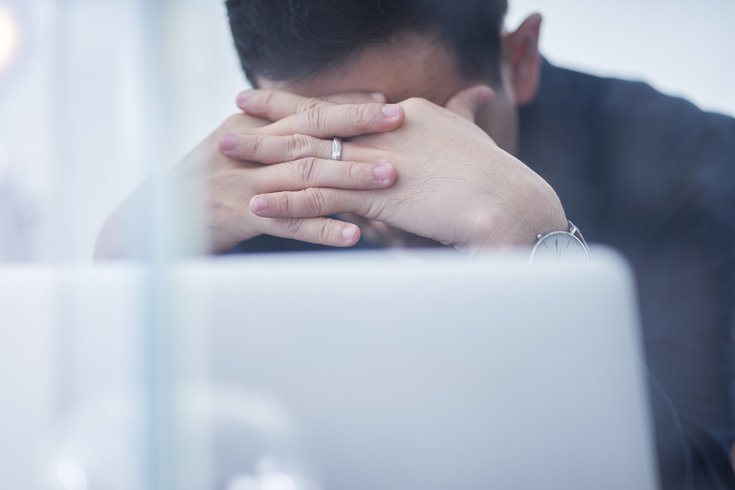
June 21, 2023
 Source/Image licensed from Ingram Image
Source/Image licensed from Ingram Image
All adults under 65 should be screened regularly for anxiety, according to new recommendations from the U.S. Preventative Services Task Force.
All adults under age 65 should be screened regularly for anxiety and depression, even if they don't have symptoms, according to new guidelines from the U.S. Preventive Services Task Force.
This marks the first time the task force – a group of 16 independent medical experts whose recommendations guide doctors' decisions – has advised routine anxiety screenings for most adults. It has recommended all adults be screened for depression since 2002.
The recommendations, published in the Journal of the American Medical Association, are the finalized version of a draft released last fall. They are based on research that shows that screenings can help identify anxiety disorders early, allowing them to get connected to mental health care.
The panel's recommendations apply to all adults ages 19 to 64; there was not enough evidence to support screenings in older adults.
Also, more research is needed to determine the effectiveness of screening all adults for suicide risk, the task force said. Though suicide is a leading case of death among adults in the U.S., there is not enough evidence to support a similar recommendation.
The task force emphasized the need for anxiety screenings among pregnant women and those who have delivered babies within the last year. Anxious feelings about pregnancy or new motherhood are common, but come with a host of risk factors, according to the American Psychological Association.
"Amid the mental health crisis in the United States, the task force worked to provide primary care professionals and their patients with recommendations on evidence-based screening," said Dr. Michael Silverstein, vice chair of the task force. "Fortunately, screening all adults for depression, including those who are pregnant or postpartum, and screening those who are younger than 65 for anxiety disorders is effective in identifying these conditions so adults can receive the care they need."
Anxiety disorders are the most common mental illnesses in the United States, impacting 40 million adults every year. Anxiety disorders often are characterized by constant, excessive fears over everyday events coupled with behavioral and physical complaints like restlessness, fatigue, concentration issues, irritability or sleeping difficulties.
Risk factors include stressful life events, a family history of mental health conditions, smoking, alcohol use and a variety of social and demographic elements. Black Americans have a higher risk due to social factors, rather than genetics, the task force said.
Most anxiety disorders, including generalized anxiety disorder, obsessive compulsive disorder, panic disorder and post traumatic stress disorder, are more common in women than men. Anxiety is highly treatable, but only about one-third of people with anxiety seek treatment, according to the Anxiety and Depression Association of America.
Medial providers can screen adults for anxiety using scales and questionnaires, asking patients about specific feelings of unease or any issues with relaxing their minds, CNN reported. In most cases, mental health professionals provide the psychological evaluations necessary to diagnose anxiety disorders, and primary care providers use screening tests to support diagnoses and assess severity.
The task force said existing screening tools are not sufficient enough to replace diagnostic testing, and mental health resources are still needed if a patient tests positive. In some cases, false-positive results on screening tests can create the potential for unnecessary treatment, though the task force said more research is needed.
The recommendations may lead to earlier treatment of anxiety disorders, experts said. But this also may add stress to an overburdened mental health care system.
"There's a potential bottleneck at the beginning when we have a lot of professionals who are already stretched thin providing services to people who've had anxiety problems or depression that are persistent and chronic and therefore require more effort and energy," Lynn Bufka, associate chief of practice transformation at the American Psychological Association, told The Washington Post. "If some of those individuals had gotten help sooner, they may not have required as long of a course of care."
Treatment for anxiety often includes some form of psychotherapy and medication, like anti-depressants. In some cases, providers may recommend relaxation and other forms of physical exposure therapy to alleviate symptoms. Because anxiety disorders often overlap with depressive disorders, doctors are advised to evaluate all patients individually.